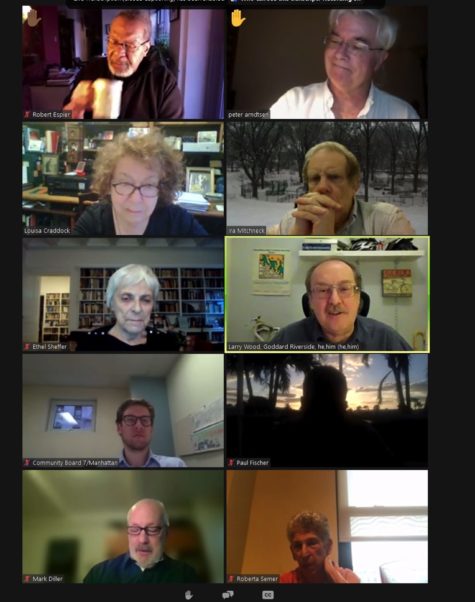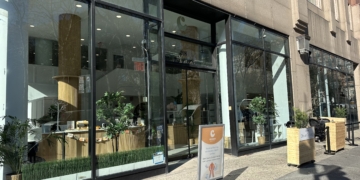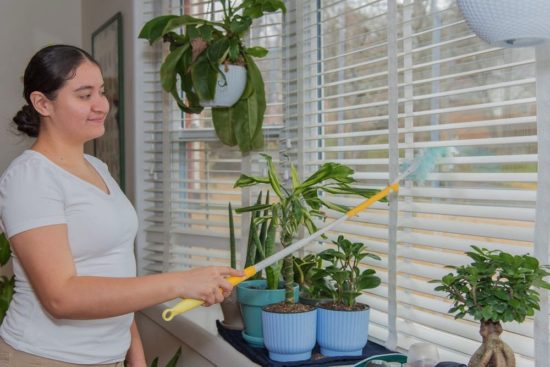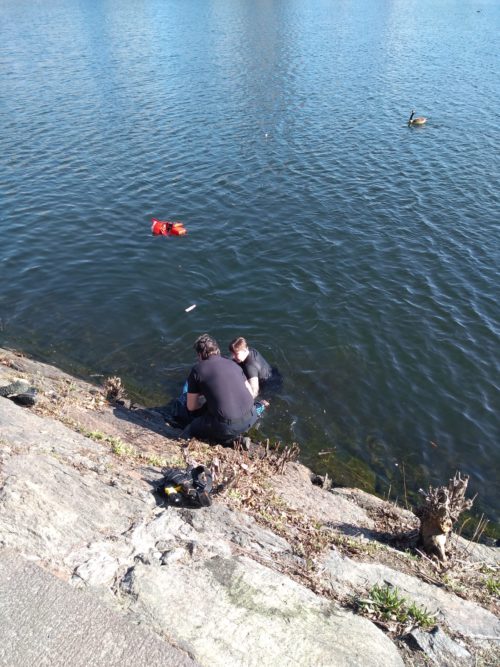By Molly Sugarman
While not new, homelessness on the Upper West Side is increasing, in part due to the unintended consequences of public policy, according to Larry Wood, director of advocacy and organizing at Goddard Riverside, a nonprofit human services provider. He spoke at the April 12 Housing Committee of Community Board 7.
Goddard Riverside’s focus is to provide safe, stable, permanent housing, he said. But it isn’t easy. In the late ‘60s, there were 200,000 low-income units on the Upper West Side. After the urban renewal push that encouraged demolition and gave us places such as Lincoln Center, the number was reduced to only 65,000 in 1986.
Another factor contributing to street homelessness is the shelter system itself, which many homeless people consider unsafe. “If you are already paranoid and worried,” he said, “would you want to be with hundreds of other people in a shelter?”
Transitioning people out of temporary housing to permanent housing has been delayed by staff shortages in city agencies due to the pandemic, Woods noted.
The current police sweeps may not be helping either. “Chasing people around doesn’t end homelessness,” he said. And Goddard has lost a partner in helping the homeless: the NYPD.
A key part of Goddard’s program is building relationships with people experiencing homelessness so they are willing to accept services. Police in the 24th Precinct were a part of that, trained in outreach and working with Goddard Riverside. But after the defund-the-police movement, the police department “has taken a step back,” Woods said. “We had really good ties with the police, but now we are on our own with outreach.”
Permanent housing with supportive services is needed, Wood said, and Goddard Riverside is trying to provide that. A building has been purchased at 235 West 107th Street (Amsterdam and Broadway). It will provide 84 units of supportive housing for homeless and low-income New Yorkers. Supportive housing is permanent, affordable housing with on-site social services.
Because community support is critical for these projects, Goddard will be contacting block associations and engaging communities, Wood said, including setting up Community Advisory Boards.
Current conditions near SROs may be a deterrent to community acceptance however. Sean Smith, a resident of W. 94th Street between Riverside and West End Avenues, described noise issues from the two SROs and the apartment hotel on his block, even at 1 a.m.
“Anything, from people picking up and dropping off other people, creating noise with car stereos, loud conversations, yelling, graffiti, people drinking and smoking on the sidewalk and dropping garbage,” he told the committee. He has talked with management at the locations and called 911.
“I’d love to be in touch with someone who can be helpful,” Smith said when District Manager Maxwell Vandervliet offered to contact him after the meeting.
Solving chronic homelessness will take more than adding a few shelters, Woods noted. The Interfaith Convocation for Housing Justice, of which Goddard Riverside is a member, proposes a four-prong approach:
1. Create more affordable housing units by incentivizing developers.
2. Prevent homelessness by preserving existing low-income housing and providing legal assistance to those with housing problems.
3. Provide Emergency and Support Services and respect human rights by funding services at adequate levels.
4. Improve employment and income support by raising minimum wages, increasing rent subsidies, and providing training for workers.










The equation over the last 35 years is pretty easy to see, rents go up, wages don’t go up at anywhere near the same rate.
Then there’s Bloomberg’s efforts, continued by De Blasio, to destroy public housing in NYC.
Nope, it ain’t simply mental illness and addiction.
Step 1. YOU MUST BE ABLE TO HELP YOURSELF AND GET SOME SELF RESPECT.
Some people need help from others to be able to help themselves.
Just the way ibankers helped themselves fix the 2008 disaster?
Why is it always everyone on the street is guilty of personal failings but when the likes of Citibank need welfare, it’s there with barely any conditions?
Would you tell that to a cancer patient? Because that’s the equivalent to telling someone with addiction and/or neurodivergencies to pull themselves up by their bootstraps.
The need for affordable housing is great and I support your efforts, but please consider the density of other such facilities nearby when you develop a new site as it may have a destabilizing impact on the neighborhood.
Let’s tie two of the top stories on WSR together. These supportive housing facilities want to develop goodwill in the community. There is a problem with filthy streets in our neighborhood. How about the people in the supportive housing help clean up the neighborhood? Having a job like this also gives the residents some structure in their lives, which is shown to be helpful.
Kind of like the DOE fund, which is a great organization.
These nonprofits have been dangling the same formula for decades, which is basically a fundraising pitch. Goddard does great work, but having them speak over and over again at CB7 meetings is becoming a bit of an echo chamber.
Notice how every nonprofit points out the failings of the shelter system, then makes a pitch for “permanent” housing run by nonprofits?
Creating permanent state-funded low-income housing is *not* the solution. The supply
of land in NY is finite, but the demand for below-market housing will always be infinite.
If the shelter system is so broken that desperate people won’t use it, we should fix the shelter system to make it safe and workable. And we should fix our mental health system by re-examining the policy mistakes of the 1950s and 1970s.
Our state’s budget is double that of Florida with fewer people. The problem isn’t money, but how it’s spent.
Providing “emergency and support services at adequate levels” as well as “employment support” is important. Wealthy people with addiction and/or mental health problems go to rehabilitative facilities which deal with the whole person. Instead of (or including)simply purchasing expensive real estate in Manhattan why doesn’t the city purchase abandonned hotels such as in Sullivan County where the homeless could get total support, medical care, job training and in-patient care. This is what rich people do in order to heal, become independent and better manage their difficulties.They can then be placed hopefully in jobs and affordable housing.
Exactly. This should be a New York State problem, not a New York City problem. Or better yet, a USA problem. Many of these people have zero ties to New York City. Land and wages are much cheaper elsewhere, and many of them would be removed from the demons that New York City supports.
If people truly want to help them, this is the best solution. That should be the ultimate goal. Many of those who disagree claim to be trying to help but are really just self-interested.
How about the state build some facilities upstate, where some of these homeless (those that are not mentally unfit or substance dependant) can learn a skill or some self employing life skill. God knows this state spends billions of dollars on the same problem year after year after year after year etc etc …..
There are no job options, housing options, healthcare options, or community options upstate. There’s a reason everyone is downstate and not in Oswego County. Stabilizing people requires a tremendous amount of community and professional assistance.
One way of reducing rats is to starve them! CB7 residents are lucky to have DSNY’s organics/composting available to them. Let’s get food out of the black trashbags and into the rat proof brown bins! Sign up here: https://dsny.force.com/curbsidecomposting/s/program
One if the issues they never address is the prison to shelter(or street) pipeline. NY is releasing inmates who are sent to shelters. The shelter system needs to be reorganized. There needs to be easier access to housing vouchers. All the organizations make money not solving this problem
Where should those released from prison go?
We really need the police on our side. I understand that their stepping back is a reaction to the defund the police movement but now maybe they have to let it go and re-join us as partners on the upper West side. I think that, for the most part, the defund the police Movement was never popular in our neighborhood.